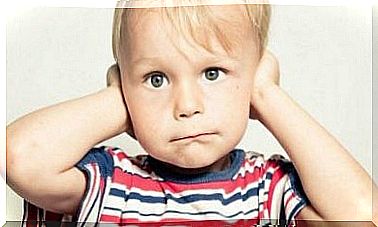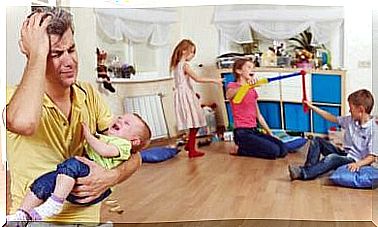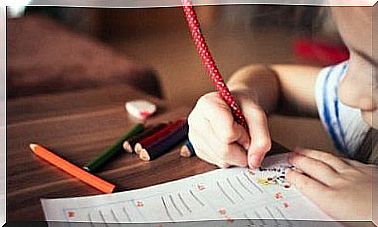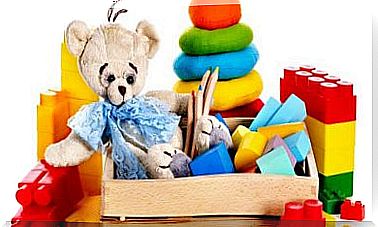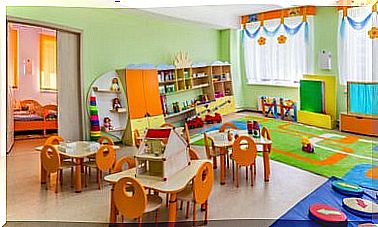Dysfunctional Family: How Does It Harm Development?

When we decide to become parents, we know that we will have to strive to raise emotionally healthy human beings. Growing up in a dysfunctional family has serious consequences for a person’s personality and quality of life.
Today’s society is characterized by haste and stress. Many times parents act by engaging the autopilot in order to meet all the commitments in the various areas of their life. However, it is essential to educate our children with awareness and not to make our actions a consequence of automatism.
Not offering children the necessary love, respect, and security will have a big negative impact on their happiness and relationships throughout their life.
Dysfunctional family
Dysfunctional family environments hinder the personal development of their members. A series of behavioral patterns are established that end up undermining children’s self-confidence.
These little ones will learn to feel inadequate and incapable. But they will also feel unhealthy connected to their family unit. The bond that is established is based on anxiety and guilt, and it will be extremely difficult for the child to leave his family and be independent, as he will feel that without his loved ones he will not be able to move forward. The two main behaviors that characterize a disabling family are excessive protection and emotional mismanagement.
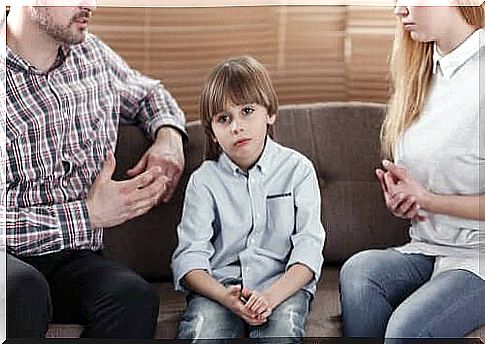
Excessive protection
Excessive protection arises from the desire to keep the child safe from any potential danger or suffering. Parents perceive the world as a place full of threats to their children and try to anticipate and avoid any problems for them. They also avoid giving them any responsibility, since “he will suffer when he grows up”.
Conduct like this, despite the good intentions behind it, sends the indirect message to the child that he is unable to look after himself. They convince him that he is unable to cope with life situations and lead him to see himself as a being of little value.
Unintentionally, they invalidate his person and his abilities. And when this child is faced with vital difficulties, he will find himself lacking the resources and without the self-esteem necessary to get out of it with his head held high. He will experience severe anxiety and be overly dependent on his parents, even in adulthood.
Emotional mismanagement
On the other side of the coin we find those parents who do not know how to adequately manage their emotions or those of their children. Usually they are people who do not come into contact with their feelings and, therefore, who have great difficulty in recognizing, regulating and expressing them.
In these contexts it is extremely difficult to convey positive messages, in fact family communication is characterized by criticism or indifference. In this way, when the child expresses an emotion, the parents take two paths: ignore it, minimize it, deprive it of value and importance, or react to it with reproaches and annoyance.
In both cases, the child receives the message that his feelings are not worthy of being treated with attention and respect. He understands that he will not receive understanding when he expresses his pain or discomfort, and that, on the contrary, he will find rejection.

As it is easy to guess, children who grow up with these family dynamics develop a tendency to completely inhibit their emotions or to express them in an extreme way.
Dependence on the dysfunctional family
The common conclusion to the educational methods presented is the dependence of children on their parents and the family environment. Both the child who has grown up being told that it always hurts, and the child who has not been told, but who has not had the opportunity to act because he is deemed incapable, share the same fate.
As the years go by, these children will find it very difficult to establish healthy relationships, developing a tendency to emotional dependence in the former and avoiding intimacy in the latter.
On the other hand, they will feel extremely attached to their family unit, to the point of seeing their individuality limited. The idea of facing life without their loved ones will seem terrible to them, moreover the family feeds this attachment because, on many occasions, these parents find in their children the excuse not to face their problems.
In light of this, it is imperative that we do our utmost to educate emotionally healthy and autonomous children. Respecting their feelings, understanding them and giving them values is the first step in forging their self-esteem.
